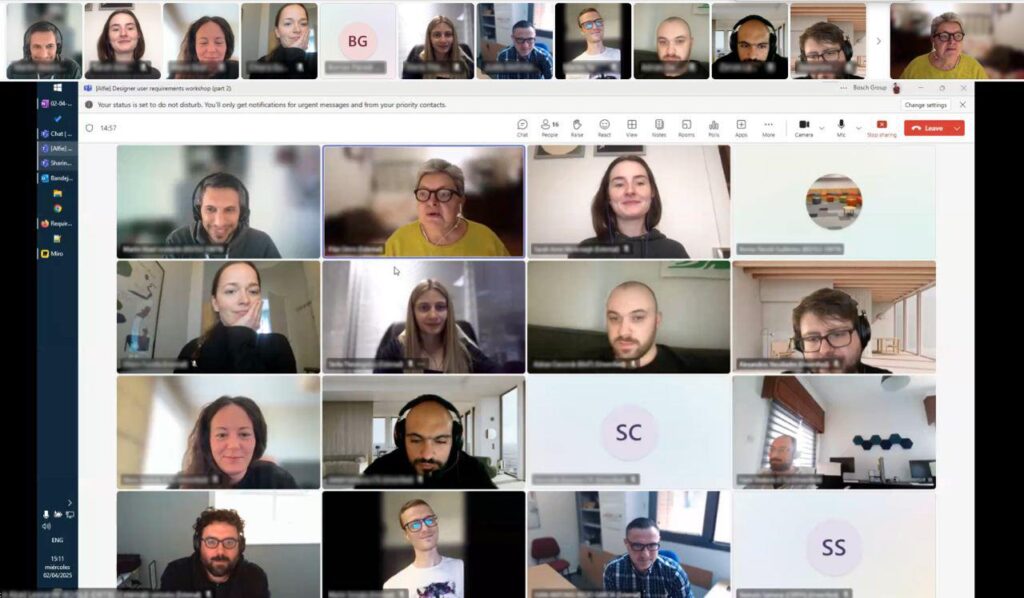
On April 2nd ALFIE held the second internal workshop with project partners. Led by BOSCH, the workshop aimed to organise and categorise the “designer user” requirements gathered during the initial stages of the project. In the ALFIE project a designer user refers to the user who wants to use the AutoML platform to create an ethical tool or model for a specific purpose. The designer user may be a designer, developer, or experienced user seeking to build a tool or model for their specific needs or for a specific purpose.
Using the interactive platform Miro, BOSCH prepared a template with the three Use Cases, where requirements were added. After this, three categories were established: Must have, Should have, and Good to have. Following a participatory methodology all partners discussed and decided on the classification of each requirement.
This second workshop follows the first, organised by UAB where requirements for end users were defined. For ALFIE “end user” comprises individuals who would directly interact with the AI models generated using the AutoML platform.
Next Steps: Technical Requirements
The valuable insights and requirements from this workshop will serve as the foundation for drafting the technical requirements for the AutoML platform. This phase will be undertaken by project partners at the University of Eindhoven. The technical requirements will provide a detailed roadmap for the platform’s development, ensuring that it meets the diverse needs and expectations of its intended users.
Conclusion:
The successful completion of these two workshops marks a significant milestone in the ALFIE project. By organising and categorising user and designer user requirements, the project team has laid a strong groundwork for the development of a robust and user-centric AutoML platform. The collaborative spirit demonstrated by all partners bodes well for the project’s future success.
